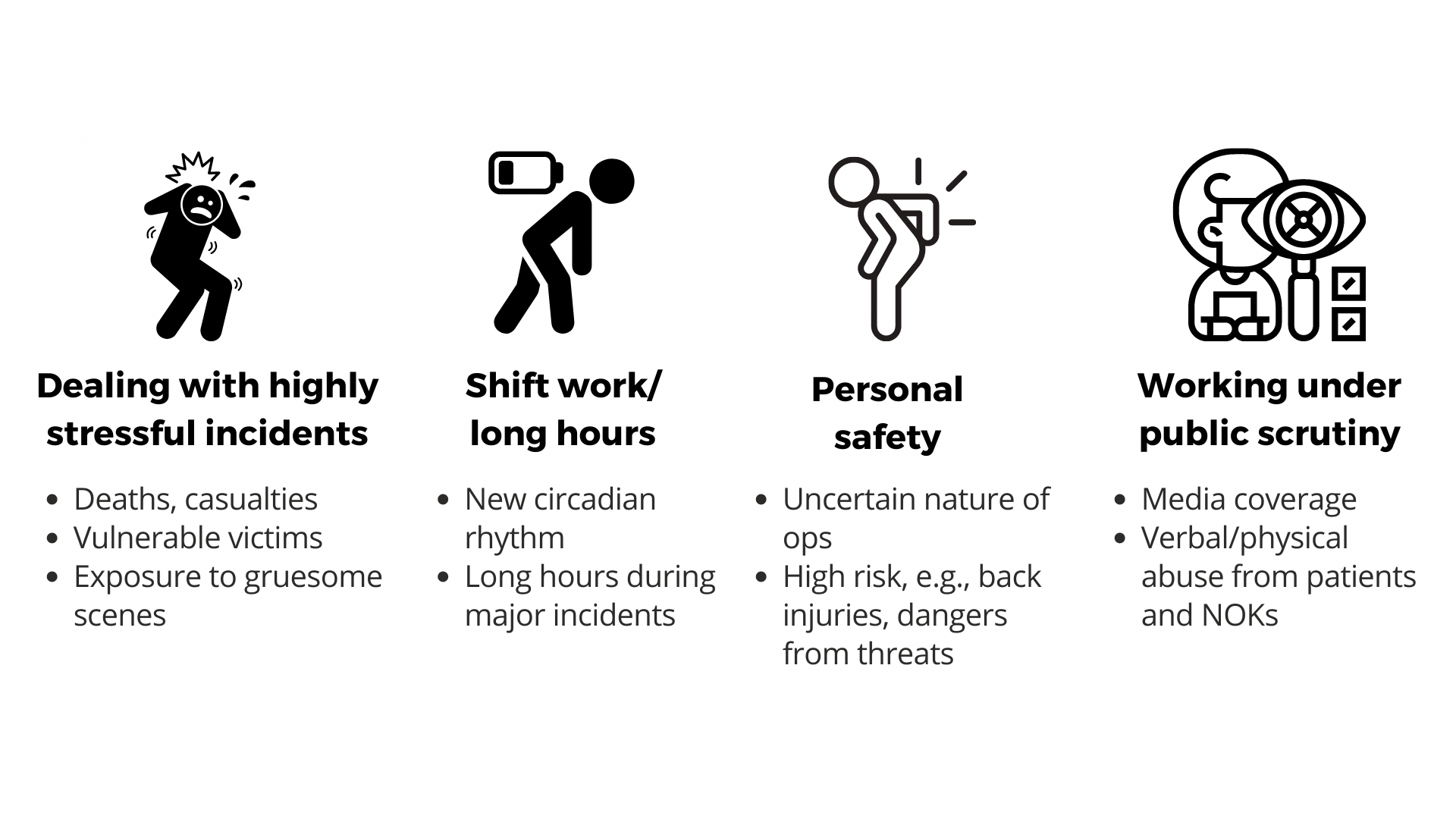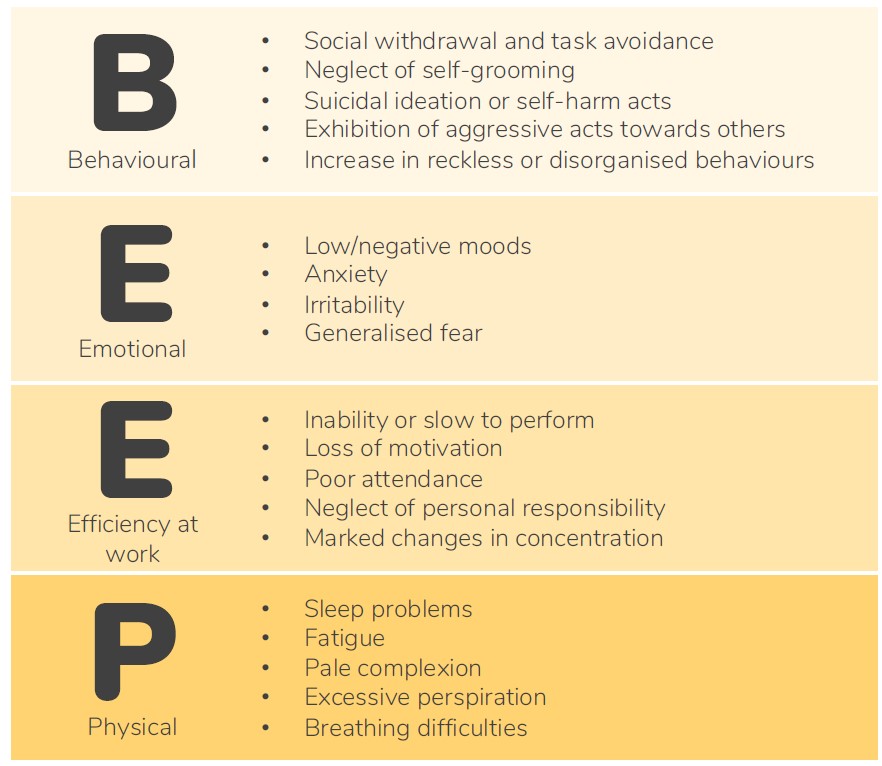Operational Stress
Stress
There are different types of stress. While many of us may associate stress with something negative, stress is not always a bad thing. Stress can be good, and we need a good amount of stress to grow. This form of stress is called eustress.
.png)
What is Eustress?
Eustress is the opposite of distress in terms of how you experience it. It is when stress creates pleasant effects and is often called positive stress.
.png) Note: This list is not exhaustive
Note: This list is not exhaustive
What is Distress?
On the other hand, distress causes unpleasant effects such as worry and anxiety. It is often called negative stress because of how it may affect us.
.png) Note: For more signs and symptoms of distress, you can check out the BEEP model under stress-related reactions below.
Note: For more signs and symptoms of distress, you can check out the BEEP model under stress-related reactions below.
While too much stress can be overwhelming (i.e., distress), we can still learn to manage this stress that we experience using appropriate strategies, such as the strategies found under physical, mental, emotional, and social fitness!
Operational Stress
How is the topic of stress relevant to emergency responders? A common form of stress we may experience in our work context is operational stress - which refers to the stress we face due to the responsibilities, condition, environment, or other pressures of the workplace.
When we are aware of such stressors and their impact, we are better prepared to manage our stress reactions and support our team members. We will also be able to perform better in our job and find meaning in our work.
Sources of Operational Stress
Here are some sources of operational stress: Note: This list is not exhaustive. For more information on highly stressful incidents such as critical incidents, check out the page on critical incident stress.
Note: This list is not exhaustive. For more information on highly stressful incidents such as critical incidents, check out the page on critical incident stress.
Stress-Related Reactions
What are some common signs that we may be experiencing distress? Let’s use the BEEP model to help us understand our stressors better!
 Note: This list is not exhaustive and different individuals may exhibit different symptoms.
Note: This list is not exhaustive and different individuals may exhibit different symptoms.
These reactions are normal responses to the nature of our duties as emergency responders or supporting the organisation. However, if these reactions persist beyond 1 month, you should see a mental health professional to address what you are going through.
There are SCDF and external resources available to support you. If you need to talk to someone immediately, you can call SCDF’s 24/7 Counselling Helpline to talk to an EPSD staff.
You can also check out these pages on building your physical, mental, emotional, and social fitness that can help you in dealing with your daily challenges and coping with the stress faced at work.
References
- Gillette, H. (n.d.). Stress Response: What’s the Difference Between Eustress and Distress? PsychCentral. Retrieved March 1, 2023, from https://psychcentral.com/stress/eustress-vs-distress

